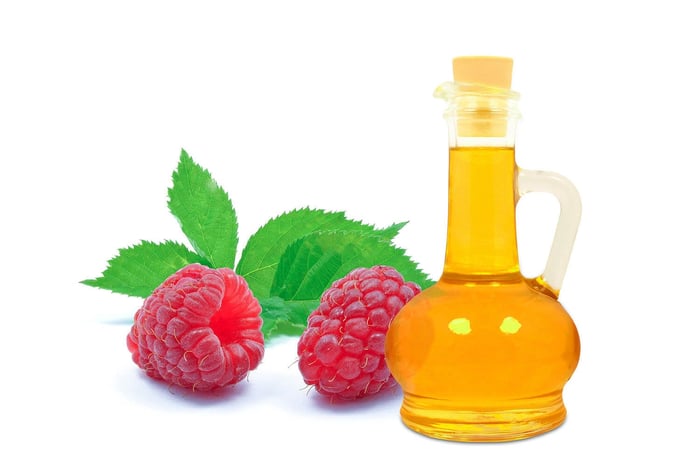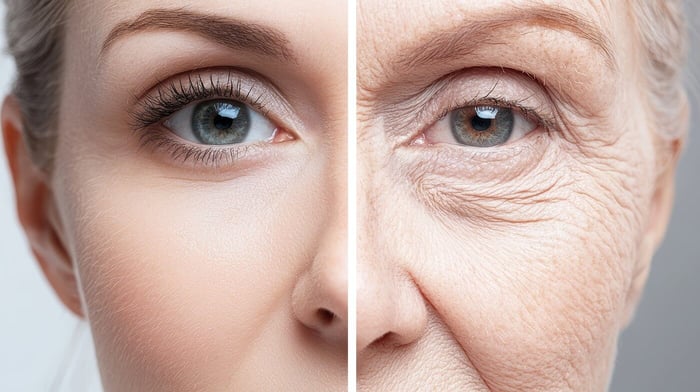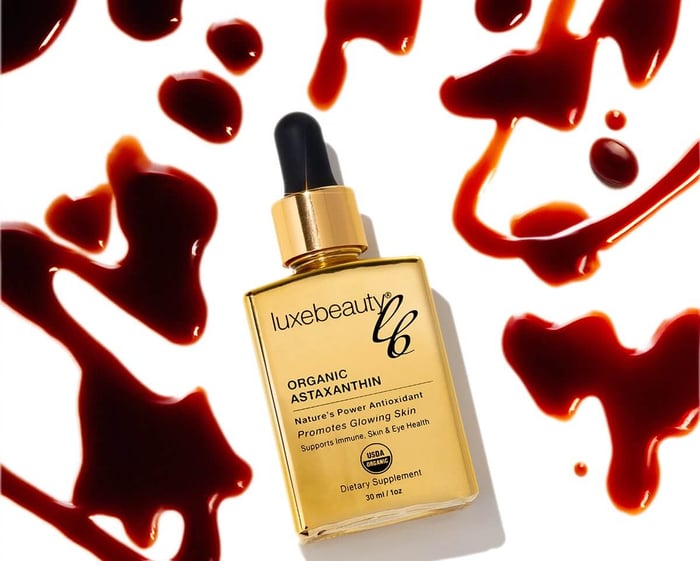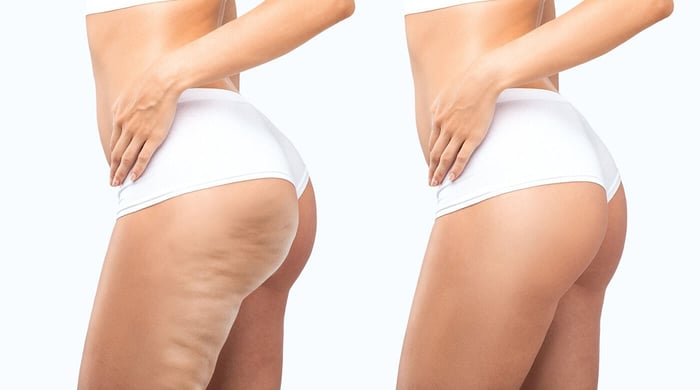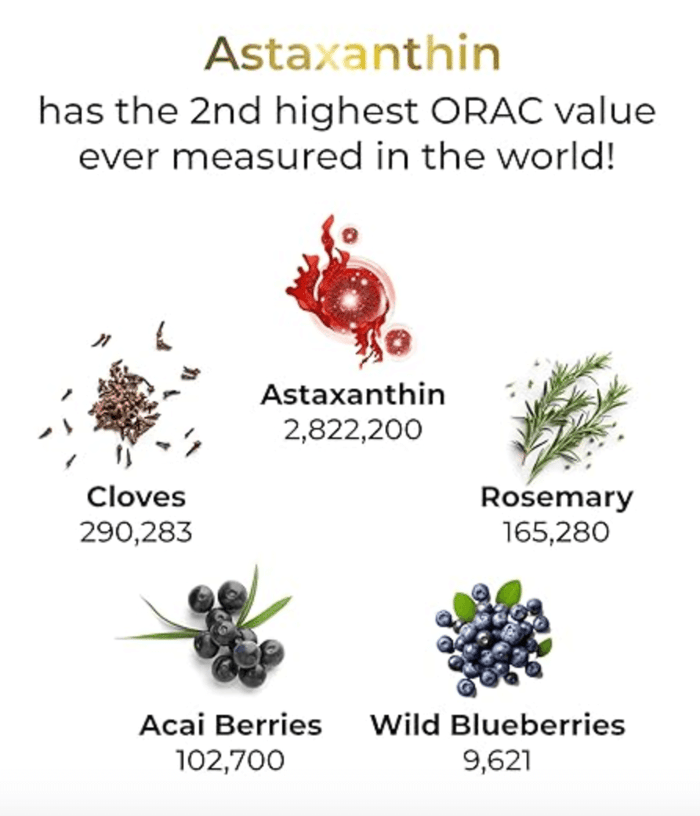We know about the incredible health benefits of eating raspberries, but do you know about the incredible skin-loving benefits raspberry seed oil provides your skin?
It wasn't until I started researching ingredients for luxe lotion that I realized how extraordinary raspberry seed oil is for the skin. I was blown away to find a research study in the Journal of Food Chemistry comparing raspberry seed oil to titanium dioxide for sun protection.
Have you noticed that raspberry seed oil is not found in stores or often used in skin care products, and if used, it is not high on the ingredient list? This is because it is costly, frequently 10-12 times the price of sunflower oil, which is very common in skincare products due to its low cost. As you might have noticed, most skincare is about clever marketing, not high-quality premium ingredients and oils like raspberry oil.
RASPBERRY SKIN BENEFITS
1. Natural Sun Protection
One of raspberry seed oil's most unique properties is its potential as a natural sunscreen. Several studies suggest it may have an SPF (Sun Protection Factor) between 28 and 50, depending on its concentration and application. This makes it an attractive alternative to synthetic sunscreens or mineral sunscreens ( aka inorganic metals), which can contain chemicals and ingredients that aren't cell-friendly and can irritate sensitive skin or harm the environment.
"In the UV- B range, the wavelengths of ultraviolet light are responsible for most cellular damage, and raspberry seed oil can shield against UV-A-induced damage by scattering (high transmission) and absorption. The shielding power in the UV-A (320±400 nm) range depends mostly on the scattering. Thus, raspberry seed oil may act as a broad-spectrum UV protectant and provide protection against both UV-A, an exogenous origin of oxidative stress to the skin, and UV-B. The optical transmission of raspberry seed oil, especially in the UV range (290±400 nm), was comparable to that of titanium dioxide preparations with sun protection factor for UV- B (SPF) and protection factor for UV-A (PFA) values between 28±50 and 6.75±7.5, respectively (Kobo Products Inc., South Plain®eld, NJ)."
While raspberry seed oil cannot be considered a complete replacement for conventional sunscreen due to federal rules and regulations, it can offer a supplemental defense against harmful UV radiation. The oil's natural sun-blocking properties are attributed to its high levels of antioxidants and EFAs, which help absorb UV rays and prevent skin damage. Additionally, the oil contains ellagic acid, a compound that prevents the destruction of collagen caused by UV exposure.
2. Anti-inflammatory and Anti-Microbial Benefits
Another noteworthy feature of raspberry seed oil is its potent anti-inflammatory properties. Omega-3 fatty acids, particularly ALA, help reduce inflammation both on the skin and internally. This makes it an excellent remedy for individuals suffering from inflammatory skin conditions like eczema, psoriasis, and rosacea.
Furthermore, it has been found to possess anti-microbial properties, making it helpful in treating acne-prone skin. The oil’s ability to reduce inflammation and fight bacteria can help prevent breakouts and promote clearer skin. Its non-comedogenic nature ensures it won't clog pores, making it a safe choice for those with oily or sensitive skin.
3. High in Essential Fatty Acids
One of the primary reasons raspberry seed oil is so beneficial is its rich composition of essential fatty acids (EFAs). It contains a balanced mix of omega-3 and omega-6 fatty acids, alpha-linolenic acid (ALA), and linoleic acid. These fatty acids are crucial in maintaining the skin’s moisture barrier and promoting healthy skin cell function.
Linoleic acid, an omega-6 fatty acid, is vital for skin hydration and reducing inflammation. Research has shown that a deficiency in linoleic acid can lead to dry, flaky skin and an increased risk of inflammatory skin conditions like eczema and acne. On the other hand, alpha-linolenic acid, an omega-3 fatty acid, helps reduce skin redness and irritation. Together, these fatty acids make raspberry seed oil an excellent emollient to hydrate and soothe the skin.
4. Rich in Antioxidants
Raspberry seed oil is a powerhouse of antioxidants, which help neutralize harmful free radicals that can cause skin damage and premature aging. The high levels of vitamin E and polyphenols in raspberry seed oil are vital contributors to its antioxidant properties.
Vitamin E, a potent antioxidant, is found in raspberry seed oil in two forms: tocopherols and tocotrienols. These compounds help protect the skin from oxidative stress, reduce the signs of aging, and promote skin healing. Studies have demonstrated that vitamin E can reduce the appearance of scars, support collagen production, and protect the skin from environmental damage, such as UV radiation.
Polyphenols, another class of antioxidants in raspberry seed oil, are known for their anti-inflammatory and anti-cancer properties. They also help improve skin elasticity and provide additional protection against sun-induced damage. Combining vitamin E and polyphenols makes raspberry seed oil an ideal natural ingredient for anti-aging and skin-repair products.
5. Moisturizing Without Greasiness
Unlike heavier oils, raspberry seed oil is lightweight and absorbs quickly into the skin. This makes it an excellent moisturizer that hydrates the skin without leaving a greasy residue. Its ability to lock in moisture while allowing the skin to breathe.
It is particularly beneficial for people with dry or aging skin, as it helps restore the skin’s natural moisture balance. It forms a protective barrier on the skin, preventing water loss and keeping it soft and supple. The oil's hydrating properties also extend to the scalp and hair, making it a versatile addition to hair care products for dry, damaged hair.
Its non-greasy texture and ability to penetrate the skin quickly make it suitable for various formulations.
6. Rich in Phytosterols
Raspberry seed oil is also packed with phytosterols and plant compounds with a structure similar to cholesterol (cholesterol functions as an essential structural membrane component). Phytosterols are known for their ability to repair the skin’s moisture barrier, reduce inflammation, and support cell regeneration.
Phytosterols have also been shown to help protect the skin against environmental stressors such as pollution, UV radiation, and toxins. They strengthen the skin’s lipid barrier and prevent the breakdown of collagen and elastin, essential for maintaining skin firmness and elasticity. Phytosterols in raspberry seed oil further enhance the ability to protect and rejuvenate the skin.
7. High Stability and Shelf Life
Unlike some plant-based oils prone to oxidation and rancidity, raspberry seed oil is highly stable and has a long shelf life. This is primarily due to its high levels of tocopherols (vitamin E) and polyphenols, which act as natural preservatives. The oil’s stability makes it an excellent ingredient for skincare formulations, as it maintains its potency and effectiveness over time.
Moreover, the oil’s stability ensures that its beneficial properties remain intact even when exposed to light and air, making it a reliable addition to natural skin care products that do not contain synthetic preservatives.
At Luxe Beauty, we prioritize using raspberry seed oil in our skincare products. Raspberry oil is abundant in our concentrated antioxidant serum and luxe lotion.
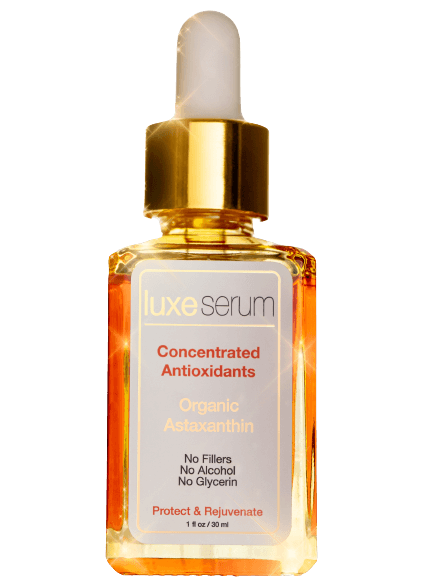
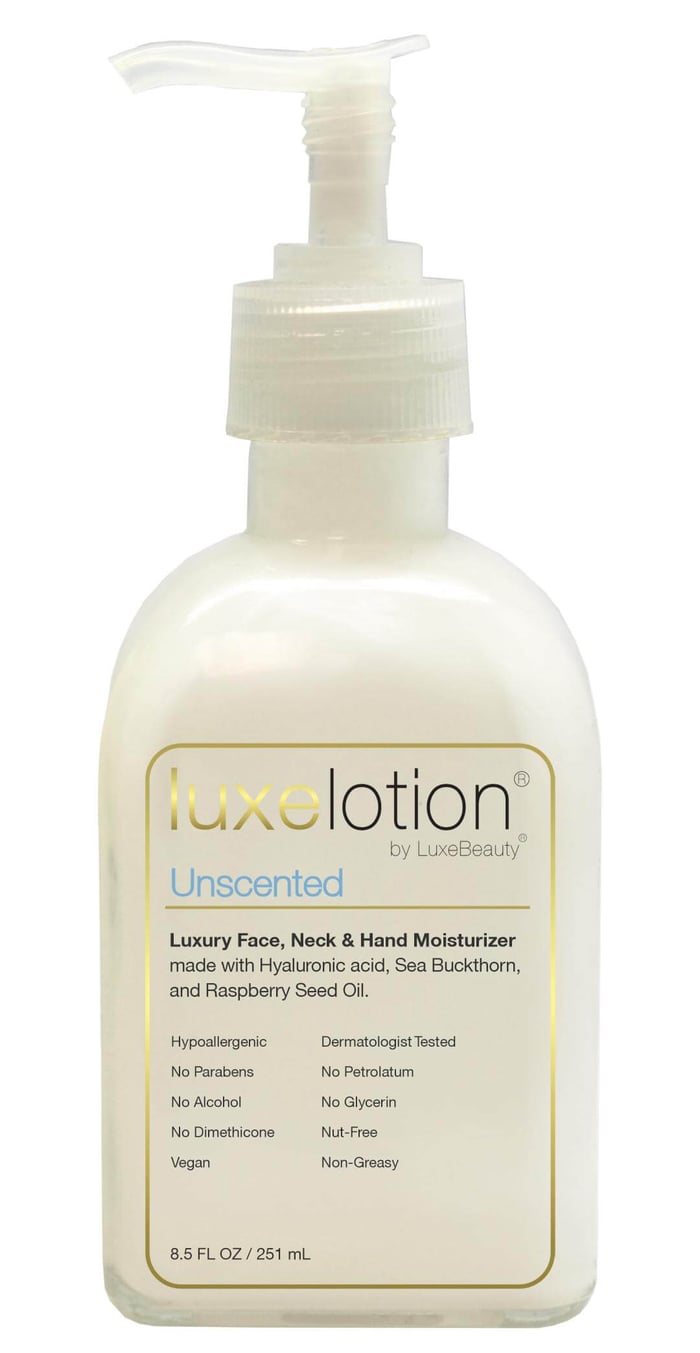
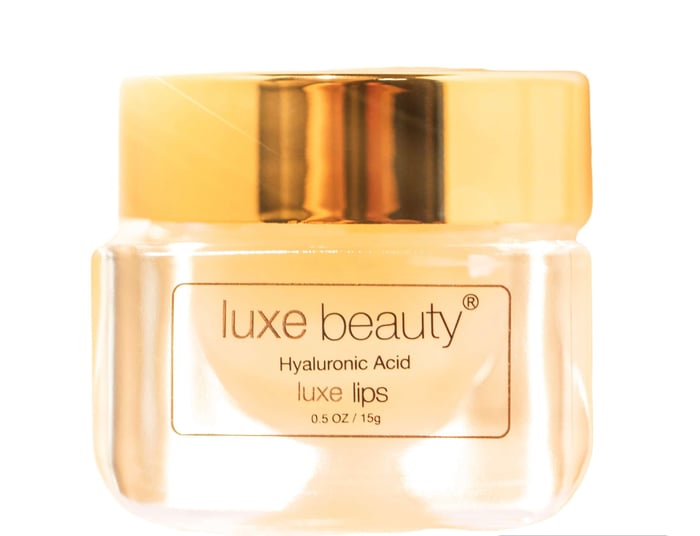
Conclusion
Raspberry seed oil is a multifaceted natural ingredient with many benefits for skin health. Its unique composition of essential fatty acids, antioxidants, phytosterols, and anti-inflammatory compounds makes it an ideal choice for those seeking natural, effective skincare solutions. Whether used for its moisturizing properties, anti-aging effects, or potential sun protection, It is a versatile and valuable addition to any skincare regimen. As research into its properties continues, this oil will likely gain even more recognition for its remarkable health benefits.
References:
- Oomah, B.D., & Ladet, S. (2000). "Characteristics of Raspberry Seed Oil." https://www.sciencedirect.com/science/article/abs/pii/S0308814699002605
- Zielinski, J., & Kozłowska, M. (2016). "Raspberry Seed Oil: Anti-inflammatory and Antimicrobial Properties."
- Lall, N., & Meyer, D. (2001). "Phytochemical and Antioxidant Properties of Red Raspberry Seeds."
- Nichols, J. (2018). "Natural Oils as Sunscreens: Raspberry Seed Oil."
- Del Rio, D., & Stewart, A.J. (2005). "Raspberry Phytochemicals and Skin Health."
- Lawrence, B.M. (2015). "Raspberry Seed Oil: Composition, Stability, and Use in Cosmetics."
- https://www.ncbi.nlm.nih.gov/pmc/articles/PMC6339709/


